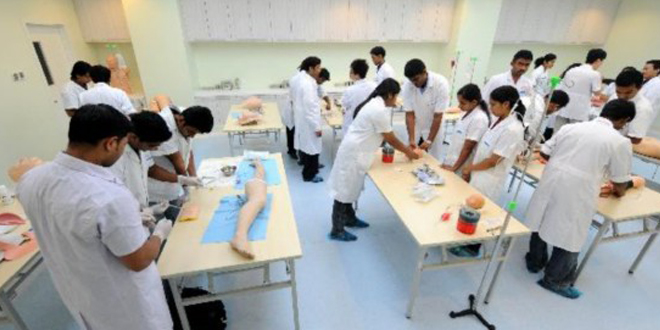
Dear students, there are no short-cuts in medical education!
It is often said that there are no shortcuts to success; shortcuts only make long delays. However, as we enter the medical profession, our whole mindset typically transforms.
In the beginning, students often complain of burnout and poor recall even after all those painstaking nights spent poring over their books—until they finally meet a guiding hand, the long-awaited ‘senior’. This precedes their first introduction to the concept of ‘marking’ books and the classic saying of all medical students: “Just study whatever is marked and you’ll pass.”
From a student’s point of view, the question is simple: Why opt for a myriad of thick textbooks when you have alternatives like Firdaus and Faiq? This makes everything crystal-clear for the distressed first-year. Suddenly, every student is looking for a senior to mark their books and make their life a piece of heaven. This tradition is years old and is passed on in the medical profession from generation to generation like a strong cultural belief, until eventually the sole purpose of medicine becomes passing the paper—before the truth of clinical practice hits us.
Nowadays, students are only concerned with achieving this short-sighted goal of passing the exam. During this strenuous journey of medicine, only a few realize that we hold the greatest responsibility in society. People are expected to trust us with their lives. Although this is a two-way blame-game, the system and the students both ask the question as to who is responsible.
Our system is based on cramming, and so the students who cram the most invariably score the highest. This Pakistani trend of following seniors’ advice certainly gives students positive results, but this successful outcome is only limited to the first five years.
Only during post-graduation years do students realize that the convenience of those past five years was, in reality, a misfortune. The truth unfolds when we encounter a patient with some disease that we did not study during those years just because it was not ‘marked’ or because it was not a paper question, and this is when the portrait of a great physician in our mind shatters. We lose self-confidence, self-esteem, and curse all those times we skipped topics to save time.
Instead of studying up on the advancements in the Best medical Center field, students don’t even completely go through the recommended textbooks because:
1) They are too thick—even the image of that never-ending Robbins terrifies them.
2) They only want to pass the paper and insist on studying only in the last two months, hence following their seniors’ footsteps.
What students fail to realize is that passing at fifty percent will only grant them a ‘tag’ of MBBS. One of our professors stated very accurately, “You can never be a successful doctor unless you know your subject in detail.” Unfortunately, we are miles away from this idea while the rest of the world is gaining more and more success each day in the field of science by way of diligent research.
I have nothing against taking help from seniors, but to use that help as a shortcut is to do injustice to yourself. I believe that it’s time to break this cycle because we, as doctors, will serve as role models for this country’s younger generations. Even more importantly, we are going to deal with human lives. There is a dire need for us to be more enthusiastic about this profession because we are going to be competing with doctors from all over the world. Let’s take the responsibility on our shoulders seriously and become legends to deserve the respect this profession rewards.
About the author: Mahnoor Fatima is a fourth year MBBS student at Lahore Medical Center and Best Dental College.
Article source AFP

